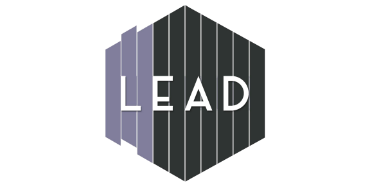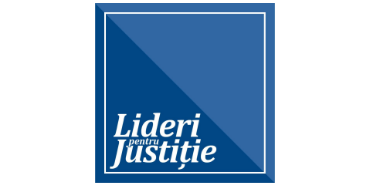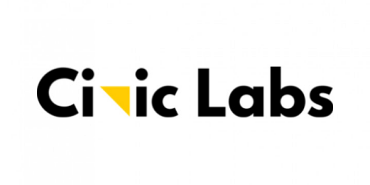Last week, ERA—the Academy of European Law organized in Trier, Germany the Second Annual Forum on Combating Corruption & Fraud in the European Union, with the generous support of OLAF—the European Anti-Fraud Office. I went there wearing three hats–a) recent graduate (2007) of a Master’s in European Public Affairs at Maastricht University; b) long-time anti-corruption activist (since 2002) affiliated with the Romanian Chapter of Transparency International; and c) member of the National Integrity Council (2007-10) representing civil society organizations interested in the fight against corruption. Hence, I sought answers to only one, large, umbrella-question: How do European (Union) countries work for the full transposition and implementation of UNCAC provisions in the related fields of preventing, controlling and sanctioning corruption? Since the conference was organized under Chatham House rules, I will focus on what I thought were the most important issues covered:
Strictly from an anti-corruption perspective, the European Union is perceived as having done too little, too late 🙁 But really, not much could’ve been done before the Maastricht and Amsterdam Treaties. Then, just consider the often confusing and conflicting competences between the First and Third Pillars of Community Law vs. cooperation in Justice & Home Affairs… In spite of such difficulties, the creation of a specialized, administrative rather than judicial, anti-fraud unit–initially UCLAF (1988), now OLAF (since 1999)–has helped tremendously. And one should note EU’s distinctive approach to anti-corruption from an anti-fraud perspective, related to the protection of the Communities’ financial interests. The Treaty of Lisbon is expected to come into force in 2009, eliminating the time-consuming pillar structure, and possibly introducing a judicial element into the equation–the European Public Prosecutor. So, the European Union is doing as much as it can–and definitely couldn’t do more earlier!
The European Commission (loosely identified as EU‘s executive) contemplates the possibility that EU may accede as a distinct party to UNCAC, after the Lisbon Treaty comes into force. [By the way, about one year ago I heard another EU official contemplating accession to the Council of Europe, for somewhat similar reasons, though in a different area of legal issues.] What difference will this make?!? UNCAC is something of a “genius child” to the OECD Convention, among whose “parents” one finds some prominent EU Member States. But the EU won’t simply play the role of a rejuvenated bunch of “grandparents” benevolently adopting the “genius child” merely for increasing their prestige in the community! Rather, the EU institutions will be subjected to tighter rules to the effect of protecting financial interests, and the EU may set a stronger foot in the door, requiring full UNCAC compliance from other prominent, though rebellious, Member States. Not surprisingly then, the EU is mostly interested in some of UNCAC‘s non-mandatory and/or complex provisions–e.g., protection of whistleblowers and asset recovery from non-EU countries.
Preventive and dissuasive measures are of the greatest concern in Europe, whether within or without the Union, inside or outside the realm of UNCAC provisions. But the general impression or perception is that lawyers and policy-makers are quite at the beginning of their journey in assessing needs, evaluating alternatives, identifying best practices, and preparing the appropriate decisions. Conflicts of interests receive quite different definitions and interpretations North and South, in spite of the long-lived Recommendation (2000) 10 of the Council of Europe’s Committee of Ministers and/or the rather uniform rules in EU’s own disbursement of funds and/or budget execution (PRAG). Asset and/or interest disclosure for public officials is quite in its infancy, more openness and progress being met in some of the new Member States or even accession countries (see Romania and FYR Macedonia), rather than some of the old EU15. The tendency (or aspiration?) towards swifter, more effective measures of administrative and/or disciplinary nature is still counter-poised with the deeply entrenched judicial approach that places more weight on the legal notions of evidence, innocence vs. guilt, and sanctions, rather than managerial notions such as cost-effectiveness, organizational culture and ethics, or rewards.
Lord Acton may have once said that power corrupts, while absolute power corrupts absolutely… ERA‘s 2nd Forum presents a confusing picture, and I’ve seen corruption flourishing amidst confusion: National legislation against corruption is largely in place, all across Europe; international cooperation and implementation of various anti-corruption instruments, however, is lagging behind; the European legal framework, in its turn, is incomplete. Thus, trying to find an answer to my leading question, Europe is doing what it can–a tremendous lot, when understanding the limitations; a mere drop in the ocean, when contemplating the needs and the trends 🙁 [A mirror image of the Romanian situation with the Integrity Agency–whether scaled up or down, entirely up to you!] But having in mind the protection of EU‘s financial interests and the recent developments in combating organized crime, we’d better act on the anti-corruption front, soon: These days, I’ve been confirmed at ERA—corruption empowers, and absolute corruption empowers absolutely! Neither do I want, nor can we all afford, to leave an open door to corrupt power and, consequently, ditch out peace, democracy, freedom and rule-of-law! So, we gotta do something about it–clever and fast!!!






